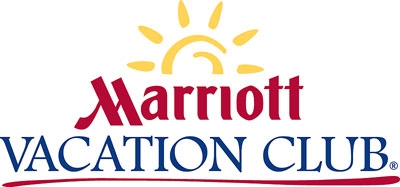Buying a home can be both a fantastic and difficult process at the same time. However dealing with the big expense of a house in one fell swoop is frequently hard for an individual or family to handle. That's where home loans can be found in. Typically in exchange for a deposit, a lending institution will give you a mortgage to enable you to fund your house with an interest rate connected.
Similar to other kinds of loans, home mortgages require month-to-month payments a procedure called amortization where you lower the debt you owe in https://karanaujlamusic2bddo.wixsite.com/donovandwdc421/post/how-to-sell-timeshare-property time. The rates of interest you get will be mostly based on your credit history, along with the size of your preliminary deposit. Furthermore, if you stop paying your mortgage, the loan provider can foreclose on your home.
Deposit requirements vary from lending institution to lender and loan to loan, but they usually aren't higher than 20%. The principal balance related to your home mortgage is essentially the amount you owe the lending institution. Lenders won't loan you money for complimentary. The interest rate you receive identifies just how much extra you'll pay beyond simply your primary balance.
Some examples of these are examination costs, origination charges and title insurance coverage. House buyers who come up short on their down payment will likely require to purchase home loan insurance coverage. Depending upon the kind of loan you get, this could can be found in the form of private home mortgage insurance coverage (PMI) or government loan insurance.
The application process asks concerns about elements like your approximated down payment quantity, employment, yearly earnings, credit rating, possessions and debt. This helps the loan provider identify the maximum loan amount you can get and the conditions under which you'll get it. Residential mortgages consist of 2 crucial forms. These are fixed-rate home loans and variable-rate mortgages (ARMs).
A fixed-rate mortgage needs the customer to pay the very same rate of interest throughout the duration of the loan. Since of this, homebuyers will be able to prevent changing market patterns. For the many part, this design of home mortgage features either a 15- or 30-year term. Some loan providers may have exclusive terms, however.
Then, depending upon market changes, your rate will modify typically on an annual basis. That makes ARMs significantly more unpredictable than their fixed-rate equivalent. Here are a couple examples of ARMs: The "5" shows your preliminary rate will last for 5 years, while the "1" suggests your rate will reset every year.
Aside from basic home loan types, government agencies offer their own loans to property buyers. 3 essential government firms provide these services: the Federal Real Estate Administration (FHA), the U.S. Department of Agriculture (USDA) and the U.S. Department of Veterans Affairs (VA). FHA loans are unique because they allow homebuyers to pay simply a 3.5% down payment, which is far listed below the basic 20%.
In fact, even those who have declared bankruptcy can get approved. You can just attain a USDA loan if you're wanting to purchase a house in a "backwoods," which is designated by the USDA itself. These fixed-rate mortgages frequently feature no down payment whatsoever. Since the VA provides these home mortgages, they are solely readily available to military service-members, retired service-members and some enduring military partners.
Jumbo loans are non-conforming home loans. This means that they do not fall within the optimum adhering loan limitations government firms set. More specifically, loans for single-family houses are topped at $484,350. If your home mortgage exceeds those bounds, you require to apply for a jumbo loan. If you're prepared to make the delve into homeownership, you'll likely need to get a mortgage.
There's a large range of companies that fit under this heading, consisting of banks, cooperative credit union and online lending institutions, like Rocket Home loan and SoFi. These loan providers can then be divided into 2 subcategories: retail lending institutions and direct loan providers. The only important distinction in between them is that retail loan providers use monetary products beyond just home mortgages, while direct loan providers specialize in mortgages.

Contrary to the massive approach used by home loan bankers, portfolio lending institutions provide their own cash by their own guidelines. This could be beneficial, as these loan providers aren't bound by the exact same stringent guidelines and investor interests that home mortgage bankers frequently are. If you need a jumbo loan, it may be easier to get one through a portfolio lender.
Home mortgages from these lenders tend to have high rates of interest and minimum down payments, however. As a result, financiers seeking to repair and flip properties on a short-term basis are their most typical clients. Like their name indicates, wholesale lenders supply moneying loans to banks, mortgage brokers and other outside lending institutions.
In a lot of cases, you'll see the name of the wholesale loan provider noted on your home loan documentation rather than your broker. When your mortgage is complete, a correspondent lender will seek to sell it to a sponsor, which is an external financier. In order to purchase a loan, sponsors need to guarantee that it satisfies their criteria.
By offering the home loans, correspondent lenders are basically ensuring they generate income, as the opportunity that a homebuyer defaults is gotten rid of. Home mortgages can be truly useful if you desire to purchase a home and can't manage the total rate upfront. Though the types of lenders that use them vary, it's eventually approximately you to decide whether a particular home mortgage, or lender, is for you.